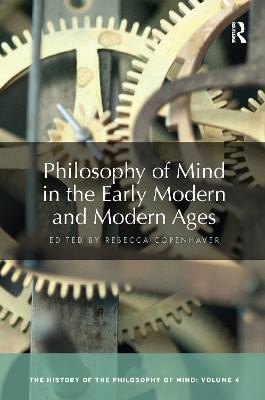Philosophy of Mind in the Early Modern and Modern Ages(English, Electronic book text, unknown)
Quick Overview
Product Price Comparison
The early modern period is arguably the most pivotal of all in the study of the mind, teeming with a variety of conceptions of mind. Some of these posed serious questions for assumptions about the nature of the mind, many of which still depended on notions of the soul and God. It is an era that witnessed the emergence of theories and arguments that continue to animate the study of philosophy of mind, such as dualism, vitalism, materialism, and idealism. Covering pivotal figures in philosophy such as Descartes, Hobbes, Kant, Leibniz, Cavendish, and Spinoza, Philosophy of Mind in the Early Modern and Modern Ages provides an outstanding survey of philosophy of mind of the period. Following an introduction by Rebecca Copenhaver, sixteen specially commissioned chapters by an international team of contributors discuss key topics, thinkers, and debates, including: Hobbes, Descartes' philosophy of mind and its early critics, consciousness, the later Cartesians, Malebranche, Cavendish, Locke, Spinoza, Descartes and Leibniz, perception and sensation, desires, mental substance and mental activity, Hume, and Kant. Essential reading for students and researchers in philosophy of mind, enlightenment philosophy, and the history of philosophy, Philosophy of Mind in the Early Modern and Modern Ages is also a valuable resource for those in related disciplines such as religion, history of psychology, and history of science.


